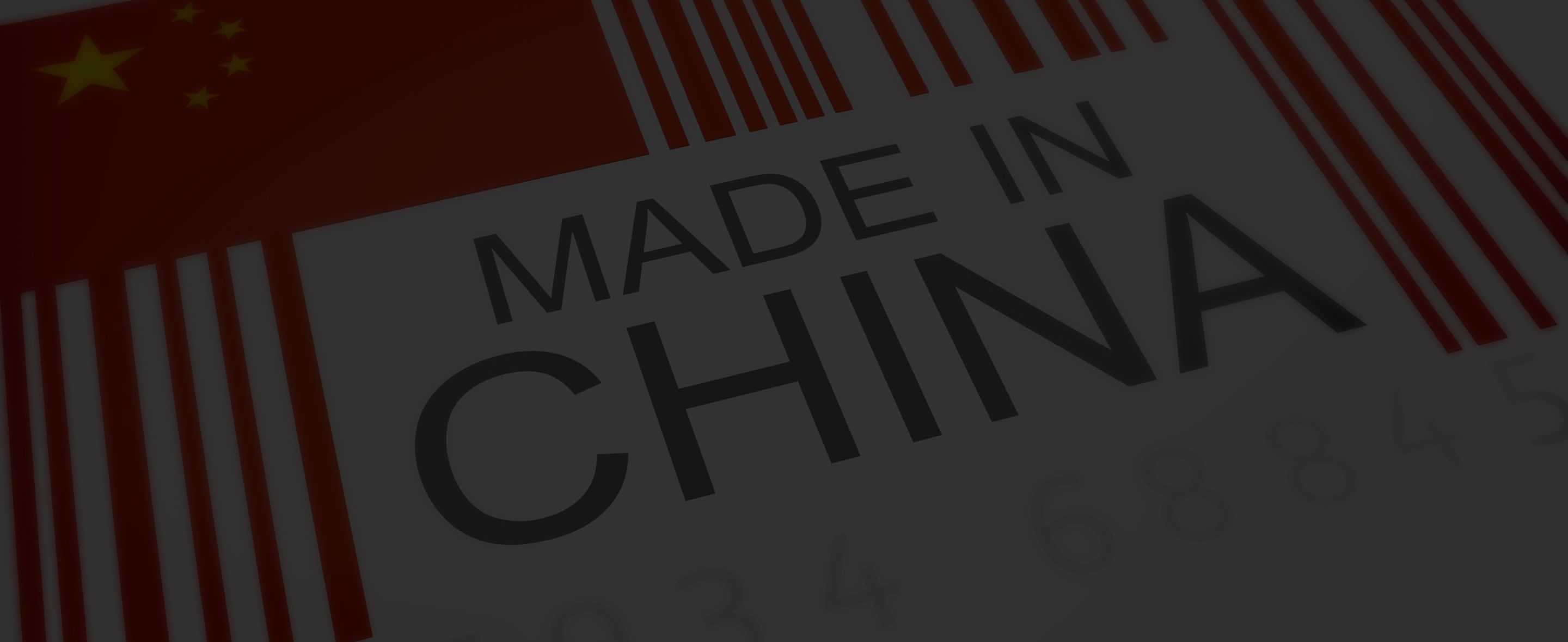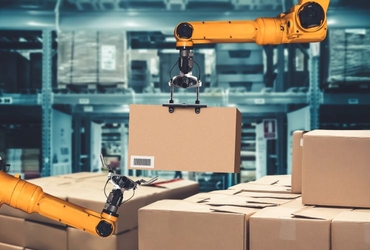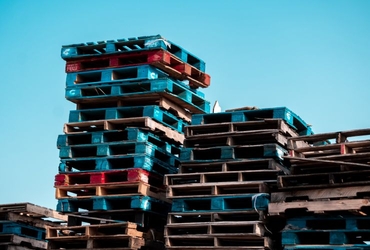
Tips for importing from China
Importing from China or thinking about doing so? Whether you’re doing it via ocean freight or air, keep in mind some important aspects and few bits of knowledge. We’ve made a complete list of what you’ll need to check out if you are considering issues that are critical to the success of your China import campaign .
1) When importing from China, investigate the specific rules and regulations
When you import a particular product, you’ll need to research the regulations with which you’ll have to comply. The number of rules will depend on the type of product you’re importing. This is always a requisite for any import, but in the case of China, you’ll need to be especially clear on the matter. That’s due to a large number of Chinese suppliers not manufacturing products that comply with such regulations. In some industries, only about five percent of Chinese export suppliers meet the usual standards and regulations of the European Union (EU).
Among those products that are especially sensitive and subject to greater regulation here – and that are also among the principal imports from Asia – are: toys and other products for children; food and food containers; vehicles, motors, and their components; electrical and electronic products and components; lighting; textiles and footwear; furniture; chemicals; cosmetic and hygiene products; construction materials; and all types of packaging in general.
Regulations generally apply to different economic regions, such as the European Union, the United States, Australia, Canada, etc. But sometimes there are also specific rules in each country for the import of certain products. Because of this, we advise you to research and determine exactly which regulations your product will need to comply with in order to be allowed into your country and not generate problems at customs. You can find this information through the chambers of commerce and customs offices of your country.
2) Choose reputable Chinese suppliers
This point is crucial for various reasons. First, you must know that the importer is entirely and solely responsible for the products that he/she imports . Any compliance irregularities with regulations and certifications can lead to serious legal problems for the importer if it results in him/her being sued because the product causes injury to a consumer.
Second, if your supplier is not reputable and issues a false or incorrect certification, your products may be held up at customs. Do note that this actually happens fairly frequently in China. It will, at the very least, bring you logistical headaches and extra costs (in terms of storage and delays), and port authorities could end up keeping the goods and absolutely prohibiting their entry into the country.
In this sense, it’s important not to trust just any supplier who tells you that he/she complies with regulations; it’s advisable to go and get to know the factory and the product in person. It also helps to be accompanied by a specialist who understands the technical problems that can arise in relation to the product and which specifications apply in order to comply with regulations.
3) Sign a firm sales contract when importing from China
Once you’ve thoroughly researched all the certifications that your product needs and you’ve found a trustworthy supplier who complies with them, it’s equally important to draw up a sales agreement in which absolutely everything is spelled out. That’s especially so for the specifications of the product and the conditions of return and compensation if the received product doesn’t comply with the agreement. This will save you many problems in the long run, and is the point on which most importers fall short: when importing from China, you cannot pay enough attention to detail.
In terms of the specification of the product, you must draw up a document that details every feature. You must do this in a way that leaves no room for subjective interpretation and that can be accepted internationally and in different cultural contexts. So if you’re talking about colors, specify the Pantone color; if you’re talking about materials, specify the densities, composition, and texture.
No aspect or characteristic of your product should be left unspecified. If you neglect this, the supplier will choose how to comply with product features, and obviously, will do it in a way that’s most cost-effective for him/her. This risks diminishing the quality and thus the final product.
Because of this, the best advice is to specify EVERYTHING when you’re importing from China: weight, acceptable variations in weight, dimensions, packaging, color, printing, materials, textures, chemical treatments, labeling, logos and other customizations, the technical characteristics of components, and anything else that you can think to specify. The more specific you are, the fewer shocks you’ll get – and if the unexpected does happen, there’ll be a greater chance that you won’t have to pay for it.
It’s also very important to specify the details of the preparation of your goods when they are ready to be shipped : palletizing, type of pallets, lamination, quantity and quality of cardboard, etc.
4) Close your international sales contract with transport conditions and Incoterms already concluded
Incoterms are international commercial terms that govern responsibilities related to international transport established between purchaser and supplier. There are numerous Incoterms, and purchasing under one or another can change the total amount of the purchase substantially. Because of this, it’s highly recommended that you resolve this before you place your final signature on the sales contract. If you’re unsure of which Incoterm to choose, do read our post on how to choose a competitive and safe Incoterm.
When importing from China, suppliers want to carry out shipments under Incoterm EXW (Ex Works), because it is the most advantageous for them. It places the maximum obligation on the buyer, and the minimum on the seller, who is responsible for nothing more than having the goods ready.
It’s often used because the supplier doesn’t have an export license. In these cases, it’s necessary to find an intermediate company through which to manage the export, complicating and adding risk to the process.
Because of this, we recommend trying to work under Incoterm FOB (Free On Board), under which the buyer is responsible for designating and booking freight, but it’s the supplier who must have the goods prepared and loaded on the ship at the port of origin. We recommend this measure not only because of the facilities involved in relation to EXW (Ex Works), but also because the Chinese suppliers who accept or suggest working under the FOB Incoterm are usually of much higher quality than those who work under EXW.
The FOB Incoterm can be taken as proof that the Chinese supplier who works with it knows what he or she is doing, has experience in exporting, and is reputable.
5) Choose the means of international transport
When everything related to your product, supplier, and sales agreement has been resolved, and the production and delivery dates have been set, you must plan your international transport.
The first thing you’ll need to decide will be whether you’ll be using air or maritime transport. That is, if you have not already established that through the Incoterm agreement. If it’s already established, as in the case of FOB, which is only applicable to maritime transport, it is still necessary to bear in mind the advantages and disadvantages of using air vs. maritime transport, such as the price ranges and time frames related to both options.
Why? If for example, you have chosen maritime transport, but production is seriously delayed, you may at the last minute have to consider a change to an FCA (Free Carrier) and ship by air.
If you have agreed to EXW and have yet to decide on the means of transport, then what you have to keep chiefly in mind is the speed with which your products must arrive at the market and the volume and weight of your goods.
Air is usually viable only when you are dealing with a low volume of goods with high added value and a high-profit margin.
6) Keep in mind transit times for both shippers and customs
When you’re importing from China, time is a decisive factor to keep in mind for a successful campaign. Our consultants always recommend that you plan a transport from/to China a minimum of three months in advance.
Usually, the approximate transit time from China for almost all shippers is between 28 and 35 days. This can vary according to the port of origin and the connection to the goods’ collection point. But you also have to keep in mind the forwarder’s recruitment process.
If you want the option of choosing the ship that is most appropriate to your needs in terms of time and fees, you should take on the management yourself here and reserve with the forwarder a minimum of a few weeks before the ship’s departure. In this way, you also make sure that the agent at the port of origin and the supplier have time to prepare the loading of your goods into the container and for their delivery to the port before the scheduled departure.
Finally, you must consider customs timelines within which your goods will be shipped in leaving China and entering Spain. Keep in mind that if any of the submitted documents is not correct or complete, or if for any reason your goods must pass an inspection, this could delay the arrival of your merchandise considerably.
7) Keep the GRI in mind
If you want to lower your international maritime shipping costs as much as possible, this could be key. This is especially so when importing from China. The GRI represents increments in freight rates that shippers apply at the beginning of each month , and that afterward are reduced weekly until they rise again at the beginning of the following month. If you’ve not looked ahead and planned your international transport with sufficient time, and a GRI is suddenly confirmed, it’s likely either that you’ll find no room on the ship that leaves on the date you want, or that you’ll have to pay freight fees that have already included the GRI, and that could end up being double what you would have paid if you’d planned better.
Because of this, considering the doubt every month surrounding a new GRI, we recommend that you speak with our consultants as early as possible, in order to obtain rates with the lowest GRI possible, or to guarantee prices in the medium term, which means that if you book at a certain rate, this will remain steady for the next three months, even if a new GRI is applied.
- 1. 1) When importing from China, investigate the specific rules and regulations
- 2. 2) Choose reputable Chinese suppliers
- 3. 3) Sign a firm sales contract when importing from China
- 4. 4) Close your international sales contract with transport conditions and Incoterms already concluded
- 5. 5) Choose the means of international transport
- 6. 6) Keep in mind transit times for both shippers and customs
- 7. 7) Keep the GRI in mind
Related Articles


